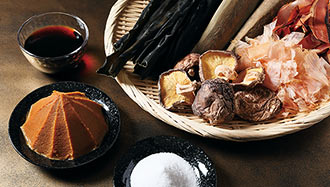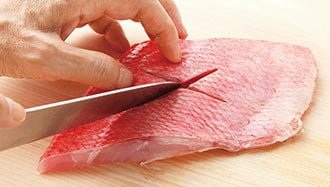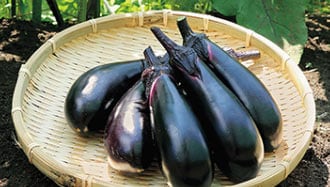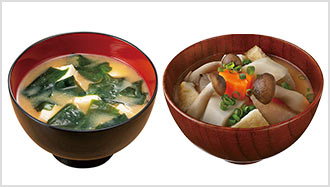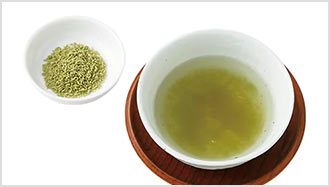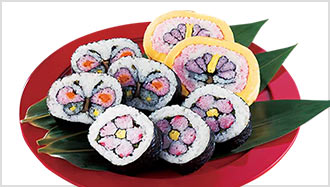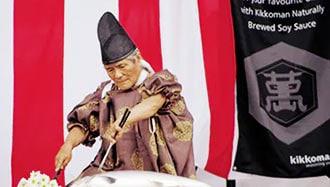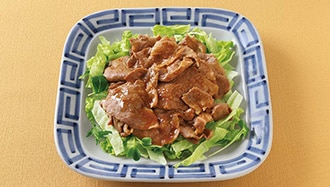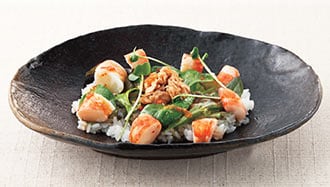
Katsuo are found in tropical to temperate waters worldwide. Referred to in English as bonito, katsuo are widely distributed along Japan’s Pacific coast, where the fish follow the Kuroshio current northward in early summer and southward in autumn. There are two peak fishing seasons for katsuo: in summer they are called hatsu-katsuo, or first bonito; those caught in autumn are modori-katsuo, returning bonito. Hatsu-katsuo are lean with a lighter flavor, while modori-katsuo, having fed on rich plankton and fish before heading south, are fattier and known for their richer taste.

Bonito are a good source of protein, vitamin B and iron, and may be cooked or served as sashimi. One well-known dish is katsuo no tataki, seared bonito fillet cut into thick slices. It is served garnished with ginger, thinly sliced garlic and onion, and drizzled with ponzu citrus-seasoned soy sauce. Bonito is also boiled, smoked, dried and fermented in order to make katsuobushi, which constitutes the basis of the umami-rich dashi stock that underscores Japanese cuisine, and whose delicate shaved flakes are used to top various dishes.





